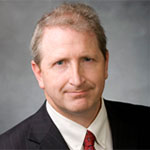
Terry Hutchinson

Dan Peterson

John Gee

Kevin Christensen

Julie M. Smith
You can listen to or download the December 9 broadcast of the Interpreter Radio Show below. It will also be included in our podcast feed (https://interpreterfoundation.org/feeds/podcast). Hosts were Terry Hutchinson, Dan Peterson, John Gee and Kevin Christensen. Topics discussed include Julie M. Smith’s new commentary on Mark and an interview with Julie herself.
The Interpreter Radio Show can be heard Sunday evenings from 7 to 9 PM (MDT), on K-TALK, AM 1640, or you can listen live on the Internet at ktalkmedia.com. Call in to 801-254-1640 with your questions and comments during the live show.
Original air date: December 9, 2018. This recording has been edited to remove commercial breaks.
Audio Player Podcast: Download (Duration: 1:33:04 — 10.7MB) |
The Interpreter Radio Show is a weekly discussion of matters of interest to the hosts, guests, and callers of the show. The views expressed on the Interpreter Radio Show are those of the individuals involved and do not necessarily reflect the views of the Interpreter Foundation, nor should statements made on the show be construed as official doctrinal statements of the Church.



As a follow up to this thread, and the question Dan raised as to whether there is evil in feminism, I would point out that since General Conference, four supposed Latter-day Saint feminists have used blogs and media outlets like the SL Tribune and the Religion News service to loudly and publicly (and shamefully) call President Nelson to repentance.
This is a very great evil indeed. They are meeting the handbook definition of apostasy or getting very close: [specific names removed, Editor]. Unless I am mistaken, it is their kinds of apostate and rebellious and critical writings that organizations like Interpreter and FAIR exist to refute.
I trust that there will be no more defenses of this kind of feminism that leads people out of the church, loudly criticizing the prophets and attempting to change doctrine as they go.
I think you are painting with too broad a brush. It reminds me of the similarly flawed argument that all Islam is bad became there are radical groups who are bad. I have no problem with calling out specifics, but assuming that anything with the label “feminism” must be terrible ignores much that is good and important.
Brandt, you will want to read the “specifics” of the public criticisms made by these women; they are offensive and shameful. Google their names; shouldn’t be hard to find.
As far as defining “feminism” in this case I am simply going by these women’s own rebellious and false words. The question of whether at least some feminism is good or evil has been asked and these women have answered it.
As for myself, I have never seen modern feminism compare well with the revealed and restored gospel of Jesus Christ. Disciples of Christ should be working to build the kingdom of God as directed by the scriptures and prophets and local leaders, not by the methods of modern philosophies of men/women, whether mingled with a little scripture or not. Such distractions help no one toward exaltation and powerful distractions do damn souls (you know those names).
. . . and your reply continues the same inflation of some into all. I disagree with that position. I don’t disagree that there might be feminists who contradict Gospel principles. I think that is probable for some who call themselves Latter-day Saints as well. I can’t see a criticism of particular people requiring the rejection of everything that falls under the umbrella label.
I am aware of some church members–some bishops and stake presidents–who have done things that are not only illegal, but morally reprehensible. I refuse to reject the Church because those few exist.
Brandt, we will have to agree to disagree on this one. I will continue to prefer my gospel doctrine and scriptural interpretations free from feminism. I find no value in it; it does not originate with revelation and is (wo)man made. If people want to view their doctrine/exegesis through that lens, they are free to do so, but I will abstain and use any influence I have in my circles to convince others to do likewise.
I seek to get as close to what the Holy Spirit originally conveyed to the author as possible, and feminism is a distraction and unwanted intrusion in that quest.
As for these four women named and others like them, I would rather a mill-stone be hanged around my neck in the sea than cast my lot with them. D&C 121:16-25 says it all.
I don’t expect perfection in any of these scholars’ works. I expect some error and ill-judgment on occasion, along with insight and illumination. As Greg states well, even McConkie and Nibley were imperfect. No disagreements from me there.
But there is a huge difference between allowing for the imperfections of the scholar and current biblical knowledge, and specifically and purposefully interpreting inspired text through the lens of feminism, which is what she stated in explicit terms she did (using another word).
Those arguing that there is nothing wrong with this approach have a different idea of using scholarship to glean better meaning from texts than I have. And of course, you are welcome to your feminist readings of scripture (but I will pass).
Again, we have to wait until the book is published to see exactly what it says, but from what I heard and quoted from the interview, and from what I have read in past years’ blogs indicating strong troubling feminist views, initial prospects do not look good for those portions of the book that may be affected/infected, with modern feminist theory. To the extent such is the case, wherein feminism may be present, those portions become worthless to those desiring the best commentary and scholarship possible. As Kent Brown stated in his interview, how can she possibly keep that worldview out of her writing. She can’t, simple as that.
I think it can be both inspiring and useful to read scripture in its original context. (After all, the Doctrine and Covenants makes very little sense in many sections without a background in the history.)
For a biblical example, understanding how a 1st century Jew would have understood the title “Son of Man” can illuminate the text. It may even influence how I read the text today, or “liken it unto myself.”
An excellent (non-LDS) treatment of one biblical section in its original context (Kenneth Bailey, The Cross and the Prodigal) is one of the best books I have ever read. (Skip the original play at the end–it’s weak sauce.) And yet it depends for its power on understanding a parable as Jesus’ contemporaries likely did. He may not be 100% right. But one cannot come away from that book’s reading without a deepened appreciation of Christ and his atonement.
As Nephi explained, to liken scripture unto ourselves is more likely to be useful if we understand “the manner of prophesying among the Jews.” Even his people (one generation removed) had trouble doing so. So we’re probably even less able without some extra work. This isn’t to say one MUST do that, or that one CANNOT read scripture without this in your toolkit. But it probably helps, at least some of the time.
None of this, of course, either praises or criticizes this volume under discussion. We’ll have to read it to see.
Commentaries are a lot like the Apocrypha. There are usually some things in them that are true, and some that are false. This means they’re not canonized scripture, but still of value:
4 Therefore, whoso readeth it, let him understand, for the Spirit manifesteth truth;
5 And whoso is enlightened by the Spirit shall obtain benefit therefrom;
6 And whoso receiveth not by the Spirit, cannot be benefited. (D&C 91)
Were this not so, Joseph Smith’s effort to learn biblical Hebrew is difficult to explain.
So I don’t think we need worry to excess about potential contamination with the philosophies of men. ALL writings (even those of McConkie and Nibley) have a lens, and no one’s lens is ground so pure and fine that all “philosophies of men” are entirely excluded. We are all embedded in culture and history. Even writing in English predisposes us to certain ways of seeing things that might not be there if we were working in another tongue. Even if McConkie and Nibley could be free of such things, there’s certainly no guarantee that I (or anyone else) is free from it as I read their words and interpret/apply them.
So even if someone somewhere gave me absolute, unshaded truth, my read on it wouldn’t be.
Only direct revelation from God can do avoid the problem. And that is ultimately where all scripture (and other inspired writing) ought ultimately to point us.
One problem with “feminist” readings _can_ be that it projects a modern concern onto a text that was decidedly unconcerned about such things. Once again, an original context understanding can be a corrective to modern interpretive excess.
(Of course, sometimes a book is too contaminated by such things; its defects outweigh its merits. Time will tell if this is such a case.)
I enjoyed this podcast. I’m looking forward to all the new things coming out this year.
I always enjoy hearing interviews with Julie Smith. Here’s another great one about the gospel of Mark: http://www.ldsperspectives.com/2017/10/25/human-jesus-gospel-mark/
As far as accusations about Julie being a feminist – she teachers at BYU, so I don’t think you can say she is an extreme heretic. Feminism has certainly been taken to damaging extremes by some people, but I don’t see that coming from Julie. Feminism in its broadest sense is just looking at things from the perspective of women, which are after all 50% of all humans. Julie is a woman, so she is likely to give that perspective. I think it can be a valuable perspective.
As far as her book on the gospel of Mark, I really doubt she’s done it with a heavy feminist agenda. She’s a level-headed, perceptive scholar, and I expect her translation will be worth reading.
Sorry, I meant to post this as a general comment, not a specific reply to Greg.
Julie has been involved with various BYU things but is not formally employed there, nor does she teach courses.
The below quotation is from a book review written by Stephen Smoot, covering a chapter written by Julie Smith in a book published by NAMI:
“In A Dream, a Rock, and a Pillar of Fire: Reading 1 Nephi 1, Julie Smith (“Huldah’s Long Shadow”) situates the prophet Lehi in a larger historical and religious context in ancient Judah by comparing and contrasting him to other prophets and prophetesses of the time (cf. 1 Nephi 1:4). She specifically explores a possible relationship between the ministries of Lehi and the prophetess Huldah, whose story is recorded in 2 Kings 22. After an analysis between the lives and teachings of Lehi and Huldah, Smith concludes, “Given the historical proximity to and importance of Huldah’s experience to Lehi’s life, and given the myriad ways in which Lehi’s story echoes and amplifies Huldah’s, readers have good reason to argue that Huldah casts a shadow over the entire Book of Mormon narrative, but especially the first chapter” (p. 16). Smith notices a similar pattern between the two, namely, “receive a divine book, read the book, and engage the book with your world through the prophetic voice” (p. 16). Smith’s careful reading of both the relevant biblical and Book of Mormon texts nicely demonstrates the sort of rich comparative reading one can accomplish between these interconnected scriptural works, and indeed why doing such is important.”
I see rampant femimism in this review summary–we have a feminist author arguing that Huldah CASTS A SHADOW OVER THE ENTIRE BOOK OF MORMON NARRATIVE.
I don’t agree with the reviewer that this constitutes rich comparative reading or that such is important. I think it is an attempt to impose a feminist perspective into a text where it doesn’t belong. I think Lehi would toss his lunch to see his writings so described and compared. How much of this kind of thing will be done in her commentary on Mark? Hence I foresee a real danger of corruption of true meaning of the text. I prefer my doctrine and scriptural understanding uncontaminated by the philosophies of the world.
I find such an ardent position against a believer who loves the gospel (specifically, the restoration) to be premature and disconcerting before even reading her commentary. I, for one, look forward to reading it with a hope it will expand my understanding of Mark and his view of the Savior while stimulating further light and knowledge–revelation.
Dan Peterson may learn some things from folks that come at texts differently than he has, but most readers, most all regular Latter-day Saints, won’t have your scriptural background to be able to tell the difference between an interpretation of a text that has been influenced by feminism (and is therefore likely in error) and one that hasn’t.
And really, how much extra enlightenment can modern feminist theory lend to the gospel of Mark? (Or the gospel of Jesus Christ for that matter.) How much more doctrinal textual enlightenment can the philosophies of men/women (feminism) provide? I am persuaded very little to none, especially for non-scholar readers.
I just read the introductory comments for S. Kent Brown’s radio interview for the volume on Luke. Everything described enhances understanding, for instance: “Brown determined to also have a home and family-centric focus in the commentary, taking his lead from Luke’s own efforts to do that.” Here the family is the center of his work, as it is with the gospel of Jesus Christ. His work “provides ties to Restoration scriptures throughout the volume.” Superb–he uses modern revelation to interpret ancient revelation! You can’t do better than that. Further, he is “bringing in linguistic, cultural, and theological understanding”–great insights from solid biblical and historical scholarship here, with no modern feminist philosophies/ideologies to be found to (possibly) alter the correct meaning of the text. He uses the JST also, wonderful!
As I look over the list of authors of these works, I feel I can trust all but one. Perhaps even Julie’s would have been worthwhile in other ways if she had color coded all those instances where she imposes feminism into her interpretation of the text. Than we could be forewarned and proceed accordingly.
How fair is it to judge a work before you read it?
I am going on her strongly feminist blogs and the radio interview, including what was read from her introduction, as I specifically stated. I do not believe any of the philosophizing I read in her blogs.
But you bring up a good point. In the interview, she states she has been working on this material all her adult life, and has been strongly influenced by feminism; in fact she admits she would have no trouble using that word instead of the one she did use in the text to describe how she informed her interpretations of the text. In other words, she has spent a lifetime combining biblical study with feminist theory/philosophies.
This gets more and more worrisome the deeper you look. Is it too much to ask to get our biblical exegesis without agenda? Everyone else involved seems capable of such….
“all those instances where she imposes feminism into her interpretation of the text”
I haven’t seen any such instances. I haven’t seen her book yet. It hasn’t been published,
Yep, I am just going on what she said she did in her interview. She went into some detail on that.
We’ll have to examine her commentary when it comes out. If an ideological lens obscures or distorts the text, that will, of course, be a very bad thing. If, however, coming at it from a somewhat feminist perspective enables us to see aspects of Mark that we haven’t noticed before, that will be a really GOOD thing. I’m hopeful. I’ve learned a lot from people who come at texts, including the scriptures, from an angle that’s different than mine.
Considering the push-back that a few of you are offering, despite what was said in the interview about the book’s Introduction, I think you might address this feminism question after the book is published and you have read it–give us all an opinion of how much feminism is imposed into the text.
Everyone is saying we can’t judge the book because it hasn’t been published yet; however, if you listen carefully to the interview, the Introduction to the book is in fact quoted and that is then fair game to be evaluated.
John Gee quotes thus: “You say that you are going to talk about textual variants and translation issues, basic cultural knowledge, biblical allusions, literary interpretation, and [feminist] interpretation which might need to get a little unpacked for the listener.”
Julie says she tried to poke at one main question: “how would Mark’s first audiences have understood this text?” They are all dead now, so why on earth does that matter for over a thousand pages, to modern LDS readers? “I am not looking specifically at devotional questions.” She says she hopes “the audience [readers] will do that themselves.” (There went all prophetic inspired commentary.) “You mention in the Introduction that you don’t cite . . . you don’t cite a lot of modern LDS authorities.” Answer, “I don’t”–she sends people elsewhere for inspired commentary–she is aiming at Mark’s original first dead audience. Space limitations of over a thousand pages kept prophetic commentary out of the book?
“You talk about non-androcentric (sp?) (feminist] interpretation, John [Gee] said we needed to unpack that a little bit; tell us what you meant by that…” “Androcentric would mean male focused; non-androcentric means not-male-focused.”
Here is gets worrisome: “I didn’t want to use the word ‘feminist.’ I don’t have a problem with using that term in other contexts or TO DESCRIBE MYSELF IN GENERAL. What I was trying to do here was not do a feminist read per-se but do a non-androcentric reading which I see as something different.” She then says she didn’t want to import modern notions or commitment into the text but wanted to ask what would the text read like if “we didn’t read it with a male focus.”
Well I’m sorry, but when an extreme feminist says she wants to read some feminism into her text but not too much, that lets the genie out of the bottle. How can such an author impose some feminism into her interpretation but not more? How do we know if or where a line is drawn with her explanations and commentary? Do we not have a right, indeed, and obligation to ask these questions? Do we not have a right to wonder how contaminated the commentary may become with her stated need to use such a flawed lens in her writing?
Again, for those who have mentioned that we don’t have the book to read yet for judgment, that is true, but we do have someone QUOTING from from her Introduction and getting HER statements about how she handled the interpretive text.
To me, to ignore the possibilities that the feminist philosophies of the world, that this author constantly writes and talks about in other venues, will not be present in her work, is naive.
Again, I want my gospel (of Mark) commentary informed and explained by prophetic and inspired commentary, and the best LDS-oriented biblical scholarship, not by feminist theory (to whatever degree). She has admitted to removing one category and inserting the other, by her own voice in this interview.
Dan, are ou going to review Julie’s book now it is available? And if so, would you give special attention to possible feminist influence or lack thereof?
I’ll probably write a column about it, but my columns are very short. There won’t be much if any space there to comment on “feminism” in the commentary.
I expect that Interpreter will eventually review it, as well. That will be an appropriate venue.
Dan, you said you wouldn’t mention feminism in your DN column, and then that is about all you did.
I wrote that the Julie Smith’s commentary on Mark reflects two backgrounds — and, thus, two perspectives — that haven’t commonly been represented in commentaries on Mark: (1) Julie Smith is a believing Latter-day Saint. (2) Julie Smith is a woman.
I don’t believe that feminism is necessarily either evil or threatening. Do you?
I don’t believe that “a woman’s perspective” is synonymous with “feminism.” Do you?
I believe that women’s perspectives are valuable and worth hearing. Do you?
Dan: “I don’t believe that feminism is necessarily either evil or threatening. Do you?”
Depends. Mild feminism might be ok if it doesn’t intrude on gospel truths; stronger feminism leads people out of the Church, to excommunication, or to criticism (Ordain Women, Mama Dragons, Feminist Mormon Housewives). Kate Kelly was probably once a faithful latter-day saint until her feminism got extreme. Then it was, as you say, “evil.”
Dan: “I don’t believe that “a woman’s perspective” is synonymous with “feminism.” Do you?”
Julie Smith has already repeatedly and publicly proclaimed herself a feminist, so the point is moot. There is another “Julie” out there (Rowe) that thinks she is a faithful latter-day saint. Are we to blindly accept her writings as your question implies? Or exercise caution and due diligence?
Dan: “I believe that women’s perspectives are valuable and worth hearing. Do you?”
I believe a woman’s perspective is just as valuable or worthless as a man’s depending on how much truth is in it and whether or not it is guided by the Holy Ghost or instead is influenced by modern philosophical bunk.
But the issue is really how valuable Julie’s perspectives on Mark are, since she is putting herself forward as the expert. Has (or will) a wise and sophisticated neutral party, not buddies with Julie or trying to defend her, investigated her text to find out? Is her work filled with instances where her publicly proclaimed feminism has consciously or unconsciously guided her interpretations of the text?
I will learn gospel doctrine from any man or woman as long as their teachings are guided by the Holy Ghost, are free of the philosophies of the world, and are in harmony with modern prophets and apostles and modern revelation.
No need to respond or reply to my rhetorical questions; just making my position and concerns better understood.
I have some deep concerns about this new look at the gospel of Mark.
In one of his first general conference talks, President Nelson said this:
“If we are to have any hope of sifting through the myriad of voices and the philosophies of men that attack truth, we must learn to receive revelation.”
I view feminism, especially extreme feminism (and I know I am not alone) as a philosophy of men/women that often attacks the truth. I observe extreme feminists get excommunicated occasionally, loudly fighting against God as they go, so it is a real danger.
I have taken occasion in past years to glance over some of Julie Smith’s blog posts, and I think there is no question but that she is a feminist, leaning towards extremism.
In this interview, she frankly admits she imposes a feminist interpretation on the text (using a different name)–but feminism by any other name is still feminism.
This raises a huge red flag for me over her entire production. How much feminist theory/philosophy has she imposed on her interpretation of the text? How could I or most other readers ever know? She admits it up front; it is a danger built into the production. Why in the world did that need to be done? Why take that course?
Engaging the interview: To me, textual variants are doing that which worldly bible scholars do; argue over which manuscripts are the oldest/earliest and which parts of them are correct, along with how any of it should be translated. Nothing helpful there.
Not citing modern Latter-day Saint authorities cuts out prophetic and apostolic–meaning inspired–interpretation. And that is one of the most important things Latter-day Saints have to offer (along with bringing their own gift of the Holy Ghost to their study). Will most readers care what Mark’s original audience thought of his book/gospel? That audience is all long dead. Is it not vastly more important to care about and write for those now living Latter-day Saints who might read the book? “Devotional” material was avoided–she took out what would have been the best stuff.
These matters are causing me to give negative opinion about her book to family, friends, and acquaintances, with full explanation, of how I don’t want feminism imposed on the text of commentaries I read. I want none of the philosophies of the world competing for space in my understanding. Hence, while I hope to acquire all other volumes in this series, I will skip the one I cannot put full trust and faith in. Instead I will turn to those who are wary of feminism and other modern thinking/trends, and instead give me inspired explanation. After all, that is the whole point of being a Latter-day Saint, getting as near to gospel truth as the author, by revelation, and assisted by other cultural and geographical scholarship. I never had to worry with Nibley or McConkie . I wish I didn’t have to worry now.
Julie’s book, and all the other volumes of this BYU New Testament commentary take a scholarly approach to understanding the Bible. I don’t see the problem with that. The D&C says, “Seek ye out of the best books words of wisdom; seek learning, even by study and also by faith.” I don’t think this means to read only what General Authorities have said. Both scholarship and revelation are valuable ways to learn.
General Authorities in conference regularly cite scholarly resources. Our own Bible dictionary was based on the writings of non-LDS Bible scholars. There is nothing wrong with being a scholar. Pres. Kimball in fact called on members to become scholar-saints. Our current leaders are continually calling on us to get as much education as we can.
A non-androcentric reading is not the same thing as a feminist reading. Even if Julie’s book were a feminist perspective, I don’t see that as automatically wrong.
Feminism is defined as “the doctrine advocating social, political, and all other rights of women equal to those of men.” I see nothing wrong with this, per se. This is in fact what our church also teaches – the equality of women. Feminism is very broad and there are many types of feminists. Just because feminism has been taken to damaging extremes by some people, doesn’t mean it can’t shed new light on something. By analogy, the Bible has been used by some people throughout history to justify terrible crimes against humanity. That doesn’t mean the Bible itself is bad.